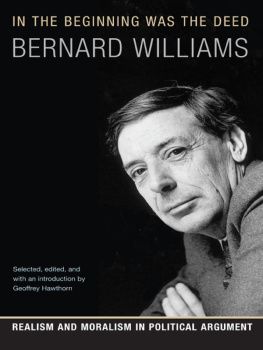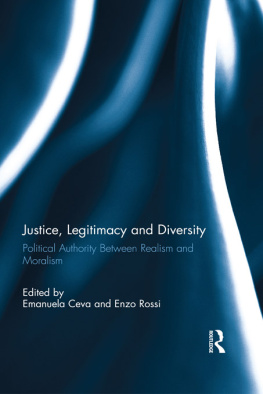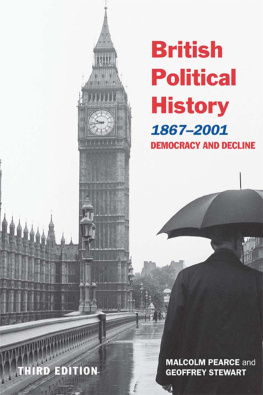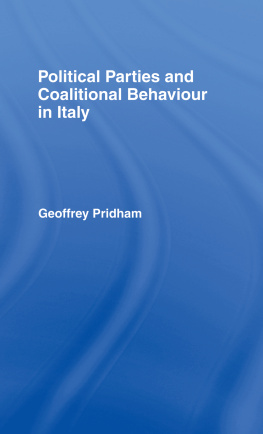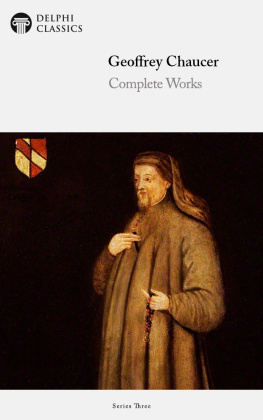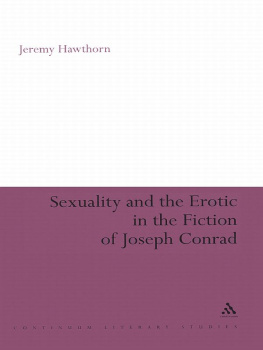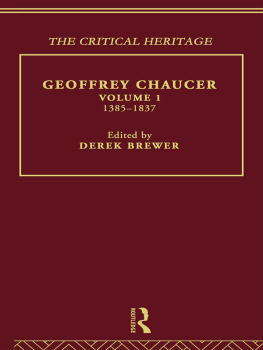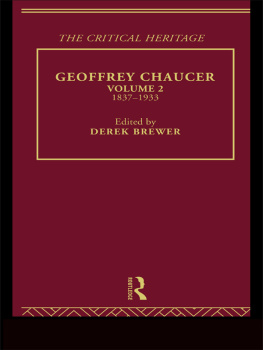Hawthorn Geoffrey - In the Beginning Was the Deed: Realism and Moralism in Political Argument
Here you can read online Hawthorn Geoffrey - In the Beginning Was the Deed: Realism and Moralism in Political Argument full text of the book (entire story) in english for free. Download pdf and epub, get meaning, cover and reviews about this ebook. City: Princeton, year: 2009, publisher: Princeton University Press, genre: Politics. Description of the work, (preface) as well as reviews are available. Best literature library LitArk.com created for fans of good reading and offers a wide selection of genres:
Romance novel
Science fiction
Adventure
Detective
Science
History
Home and family
Prose
Art
Politics
Computer
Non-fiction
Religion
Business
Children
Humor
Choose a favorite category and find really read worthwhile books. Enjoy immersion in the world of imagination, feel the emotions of the characters or learn something new for yourself, make an fascinating discovery.
- Book:In the Beginning Was the Deed: Realism and Moralism in Political Argument
- Author:
- Publisher:Princeton University Press
- Genre:
- Year:2009
- City:Princeton
- Rating:3 / 5
- Favourites:Add to favourites
- Your mark:
- 60
- 1
- 2
- 3
- 4
- 5
In the Beginning Was the Deed: Realism and Moralism in Political Argument: summary, description and annotation
We offer to read an annotation, description, summary or preface (depends on what the author of the book "In the Beginning Was the Deed: Realism and Moralism in Political Argument" wrote himself). If you haven't found the necessary information about the book — write in the comments, we will try to find it.
Hawthorn Geoffrey: author's other books
Who wrote In the Beginning Was the Deed: Realism and Moralism in Political Argument? Find out the surname, the name of the author of the book and a list of all author's works by series.
In the Beginning Was the Deed: Realism and Moralism in Political Argument — read online for free the complete book (whole text) full work
Below is the text of the book, divided by pages. System saving the place of the last page read, allows you to conveniently read the book "In the Beginning Was the Deed: Realism and Moralism in Political Argument" online for free, without having to search again every time where you left off. Put a bookmark, and you can go to the page where you finished reading at any time.
Font size:
Interval:
Bookmark:
In the Beginning Was the Deed
In the Beginning Was the Deed
REALISM AND MORALISM IN
POLITICAL ARGUMENT
Bernard Williams
Selected, edited, and with an introduction
by Geoffrey Hawthorn
P R I N C E T O N U N I V E R S I T Y
P R E S S P R I N C E T O N A N D O X F O R D
Copyright 2005 by Princeton University Press
Published by Princeton University Press, 41 William Street,
Princeton, New Jersey 08540
In the United Kingdom: Princeton University Press,
3 Market Place, Woodstock, Oxfordshire OX20 1SY
All Rights Reserved
Third printing, and first paperback printing, 2008
eISBN: 978-1-40082-673-5
The Library of Congress has cataloged the cloth edition of this book as follows
Williams, Bernard Arthur Owen.
In the beginning was the deed : realism and moralism in
political argument / Bernard Williams ; selected, edited,
and with an introduction by Geoffrey Hawthorn.
p. cm.
Includes bibliographical references and index.
1. Political sciencePhilosophy. 2. Political ethics. I. Hawthorn, Geoffrey.
II. Title.
JA71.W462 2005
320'..01dc22 2005043379
British Library Cataloging-in-Publication Data is available
This book has been composed in Sabon
Printed on acid-free paper.
press.princeton.edu
Printed in the United States of America
10 9 8 7 6 5 4 3
Contents
Patricia Williams
IT IS SAD, but appropriate, that my final, practical gesture of appreciation and love for Bernard should be to help with the publication of the last three collections of his philosophical writings. The Sense of the Past: Essaysin the History of Philosophy, Philosophy as a Humanistic Discipline, and In the Beginning Was the Deed: Realism and Moralism in PoliticalArgument will be published by the Princeton University Press three years after his death in June 2003. Bernard helped and encouraged me in countless ways in my publishing career, bearing out my conviction that editors in university presses should be judged by their choice of advisers as well as by the authors they publish.
Like many who knew him, I thought Bernard was indestructibleand so, I think, did he! But when he was recovering from the drastic effects of his first bout of treatment for cancer in 1999, we talked for the first, and almost the only, time about what should happen to his papers if he could not finish Truth and Truthfulness. Thankfully, that was published in 2002, although he would have expanded it in several ways if time had not seemed so pressing. What I learned from this conversation was that Bernard had no faith in his, or any philosophers, ability to predict whose work would be of lasting interest to their successors. That was for the future to decide. So, although he was totally against what he called posthumous laundry lists, he refused to express any other opinion about what should be published after his death. Fortunately for me, he did specify that, although I should handle the practicalities of publishing as I thought fit, he would ask a young philosopher of gritty integrity and severity of judgement who understood the sorts of things he had been trying to do in philosophy to keep me on the philosophical straight and narrow. That was Adrian Moore. I am deeply grateful to him for the careful consideration he has given to the complicated, general issues of publication and republication, and for his friendship.
Deciding on the content of this particular volume has been a heavy responsibility. It is painful to remember how much Bernard wanted to finish a book on this subject. He worked on it right up to the end. His voice comes through strongly in the files and many notes and drafts on his computer. But the goal has been to select from the unpublished material only those papers and lectures Bernard himself would have approved for publication in their unedited form, and without the crucial linking material and additional topics he would have incorporated in the more ambitious book he wanted to write. In particular, he planned to relate his work on political theory to his experience of political life in post-war Britain and America.
Geoffrey Hawthorns contribution to this project is due in small part to that missing autobiographical element. Throughout our years in Cambridge, he and Bernard spent many enjoyable hours discussing interests they shared, politics being one of the most important to them both. I owe Geoffrey an enormous debt for devoting so much thought and time to this volume.
I should also like to thank those who advised and commented on the selection: Adrian Moore, of course, and Barry Stroud who has long been my trusted friend and adviser on Bernards work. Thomas Nagel and Samuel Scheffler also helped to shape this book in crucial ways. Sadly, the notes Bernard made on his numerous discussions with Ronald Dworkin over the years and, in particular, on the seminars they gave together in Oxford, though intelligible, were not in publishable form, nor were Bernards contributions to the joint seminar he gave with Robert Post in Berkeley. But there are many signposts to their intellectual stimulus and influence.
My heartfelt thanks, also, to Walter Lippincott, the Director of Princeton University Press, and his staff in Princeton and Oxford, whose commitment to Bernard as an author, and to high standards of editing, design, production, and marketing are so appreciated at a time when scholarly publishing faces such complex financial challenges.

Finally, I should like to acknowledge the publishers who have kindly given their permission to publish material in this volume.
In the Beginning Was the Deed in Deliberative Democracy andHuman Rights, ed. Harold Hongju Koh and Ronald C. Slye (New Haven: Yale University Press, 1999). 2000 by Yale University.
Pluralism, Community and Left Wittgensteinianism in CommonKnowledge 1, no. 1 (Durham: Duke University Press, 1992).
The Liberalism of Fear. We would like to thank Wolfson College, Oxford, for kindly allowing us to publish this article.
From Freedom to Liberty: The Construction of a Political Value in Philosophy and Public Affairs 30, no. 1 (Oxford: Blackwells, 2001).
The Idea of Equality in Philosophy, Politics and Society, 2nd ser., ed. Peter Laslett and W. G. Runciman (Oxford: Blackwells, 1962).
Toleration, a Political or Moral Question? in Diogene 44, no. 4 (1996). The same article was published by Dioge`ne in French, English, and Arabic.
Geoffrey Hawthorn
I
Bernard Williams did not start writing in a sustained way about politics until the later 1980s. As he says in the first of the essays in this collection, he was most immediately prompted to do so by his encounters with legal and political theorists in the United States. But it was a natural move. He had long had an interest in issues of public concern in Britain and had engaged with the practicalities of several. The experience had strengthened his conviction that questions of principle could not be considered apart from those of practice, and that the practicalities were in part political. In his moral philosophy, the considerations on the question of how we should live that he had brought together in Ethics and the Limits ofPhilosophy (1985) had clear implications for politics: on where we were answering from and to whom, on the relation in our answers between theory and experience, and on how what we say is relative to us.But in the academic conversations he enjoyed in the United States about law and politics, subjects that connect more closely there than they do in Britain with philosophy and each other and public life, he was dismayed.There seemed to be a Manichaean dualism of soul and body between the intense moralism of much legal and political theory and the bare realism of the concentration in political science on interests. He was also stimulated along the way by exchanges in Germany with Jrgen Habermas. Williams had motives in plenty to work out his own ethic of political responsibility.
Next pageFont size:
Interval:
Bookmark:
Similar books «In the Beginning Was the Deed: Realism and Moralism in Political Argument»
Look at similar books to In the Beginning Was the Deed: Realism and Moralism in Political Argument. We have selected literature similar in name and meaning in the hope of providing readers with more options to find new, interesting, not yet read works.
Discussion, reviews of the book In the Beginning Was the Deed: Realism and Moralism in Political Argument and just readers' own opinions. Leave your comments, write what you think about the work, its meaning or the main characters. Specify what exactly you liked and what you didn't like, and why you think so.

